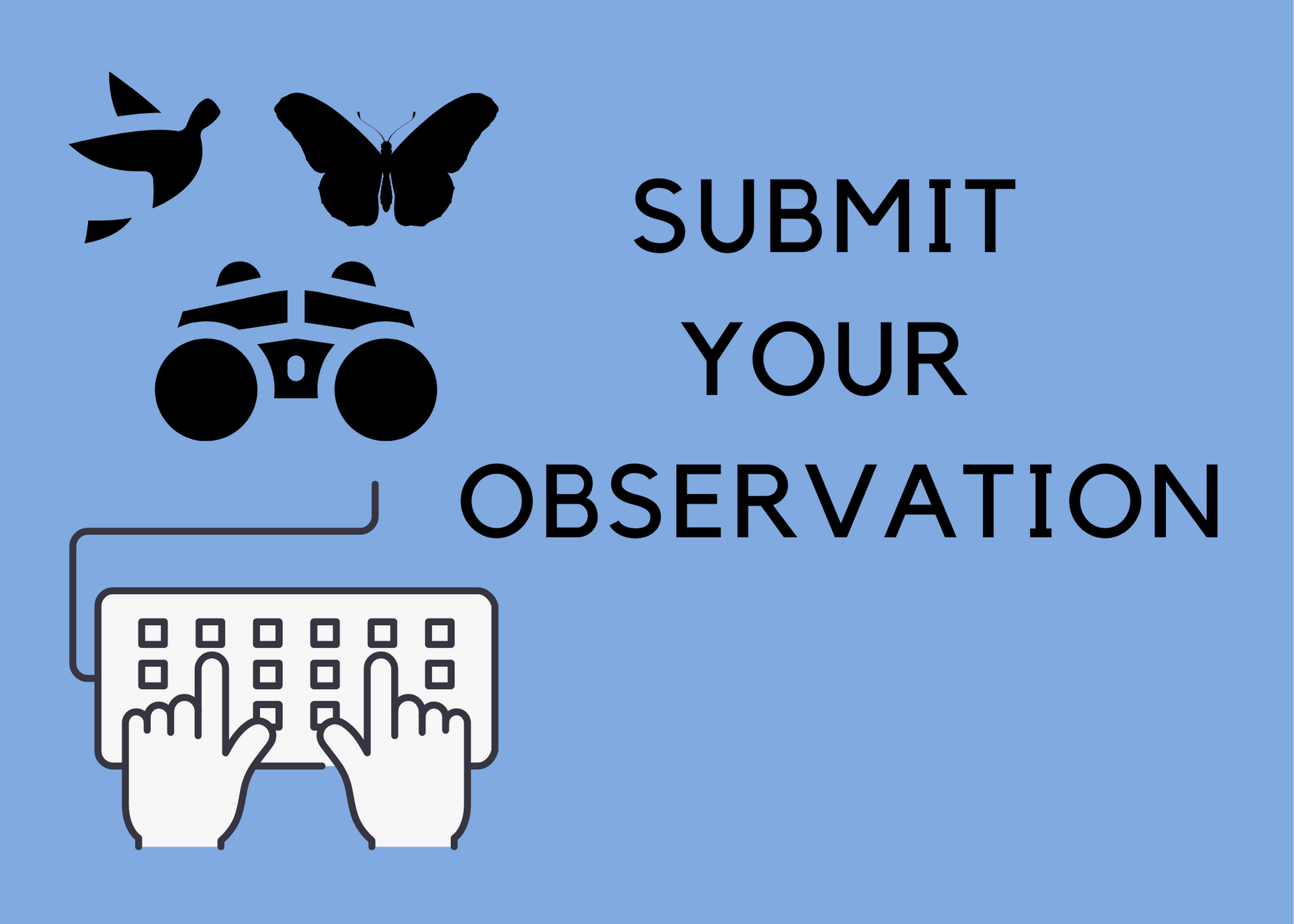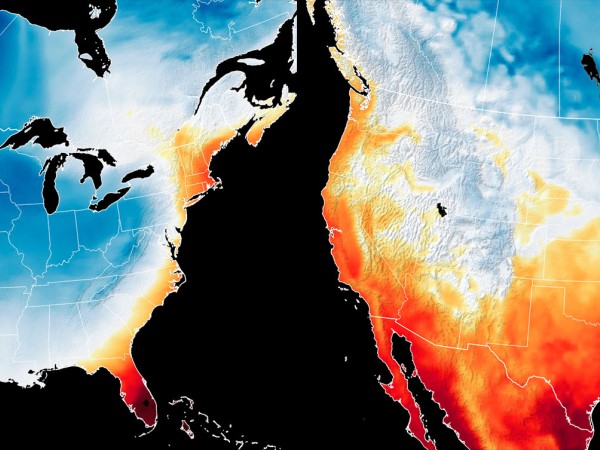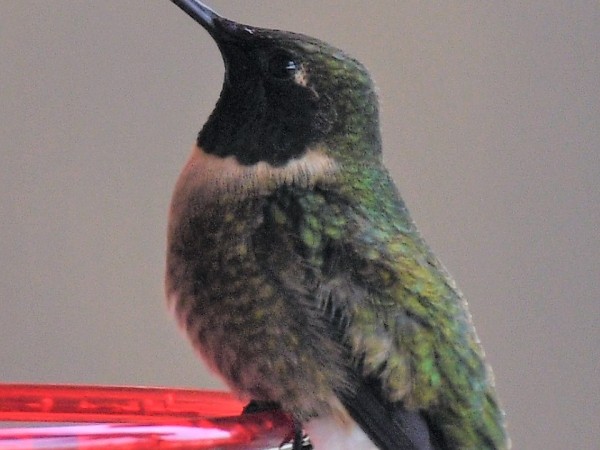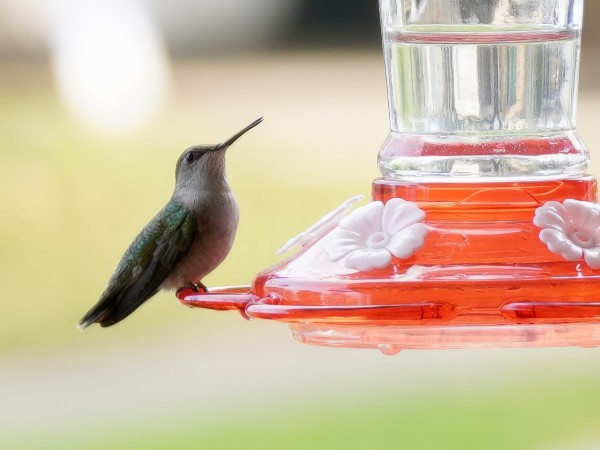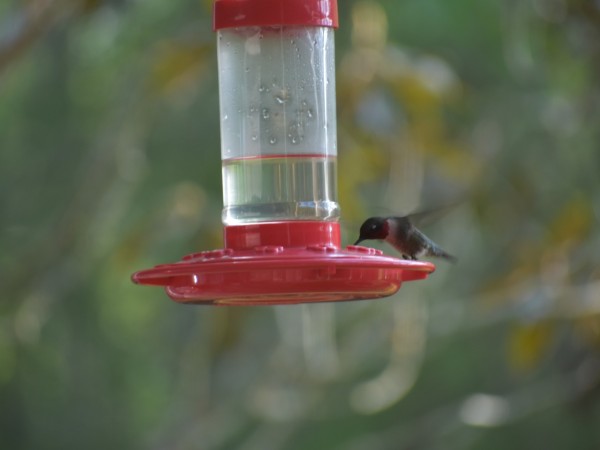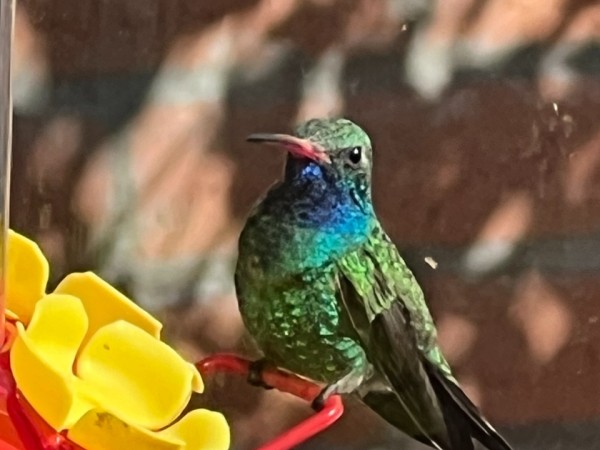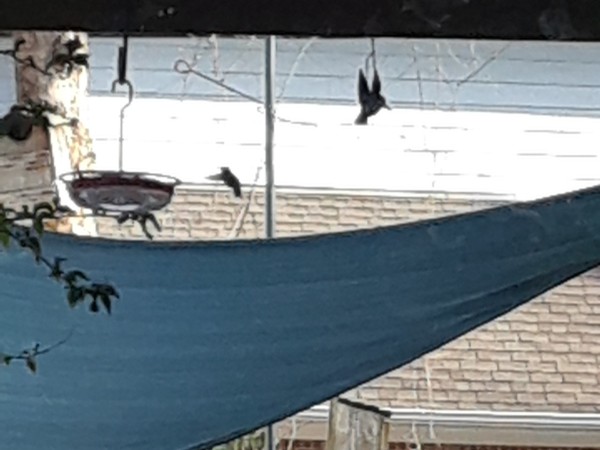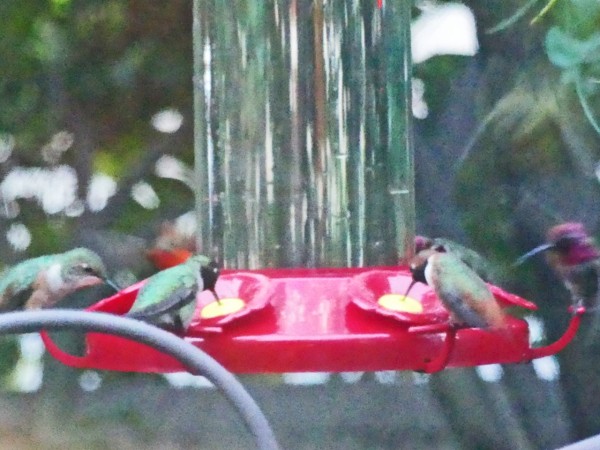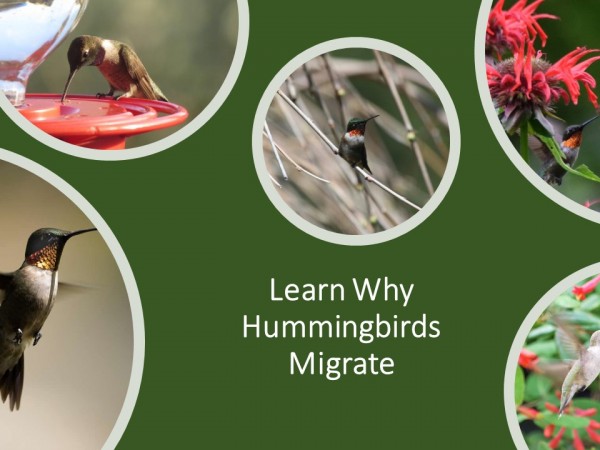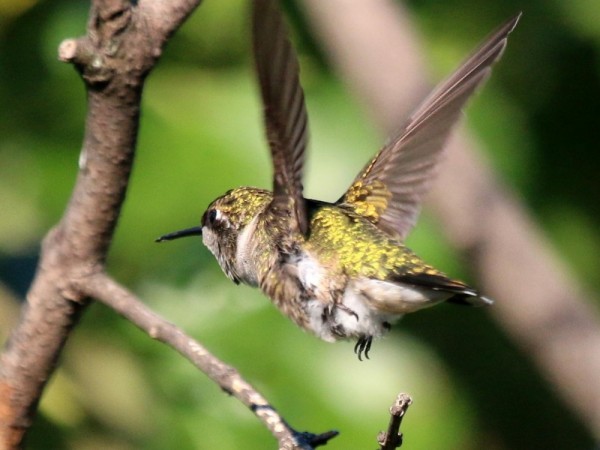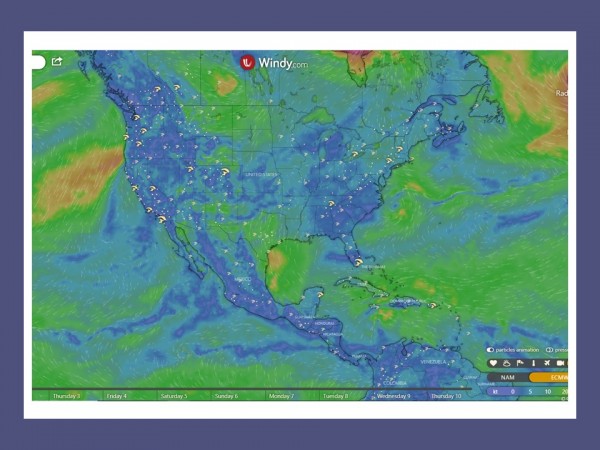Pure Joy! Your First Spring Hummingbird Visitors.
Are your feeders up? Spring migrating hummingbirds are arriving in southern regions of the U.S. but weather patterns seem to be impacting the pace of migration. Keep an eye on the weather and be ready to report your hummingbird observations to Journey North.
Rufous Hummingbird Migration
This year, the whiplash weather along the Pacific coast has impacted the migration of many species including hummingbirds. Journey North observers are seeing Rufous hummingbirds from Ocotillo to Mendocino, CA. Only a few Rufous hummingbirds have been seen in Oregon and Washington state. At this point last year, Rufous hummingbirds had been seen as far north as Vancouver, British Columbia. Compare the Journey North Rufous hummingbird spring migration maps for 2022 and 2023. What differences are you seeing?
Jackie in Ocotillo, CA: “Male Rufous chased either juvenile or female Costa's out of lavender shrub, then took the primo perch for himself. I visit this area seldom so not sure if this was definitely first migrant. Good hummingbird chow around with all the rains - chuparosa, lavender, indigo.” (03/08/2023)
Sandra in Mendocino, CA: “First sighting of male feeding on Cotoneaster.” (03/12/2023)
Kathy in Cannon Beach, OR: “One lone brilliant male.” (02/22/2023)
Ruby-throated Hummingbird Migration
Along the Gulf Coast states in the U.S., Journey North volunteers are seeing their first Ruby-throated hummingbirds of the spring migration season. Migratory activity should increase steadily over the coming weeks in this region. Please share your observations with Journey North.
Ernest in Jewett, TX: “I had put out fresh Nectar at daybreak, then I heard that red ruby whistle I turn around and there she was sipping looking and telling me how good it was, a wonderful 15 secs and then just like a hummer zoom zoom off she went.” (03/04/2023)
Myrna in Dickinson, TX: “I decided to put out some nectar yesterday and saw 2 of them! One drinking and the other hovering right in front of the first. I always have one chasing the other. They’re at it again and I couldn’t be happier! (03/07/2023)
Clara in Angleton, TX: “I can't express the joy of seeing my first male ruby-throated hummingbird of the year!” (03/09/2023)
Deb in Bellaire, TX: “Likely immature male or female ruby-throated. First of the season.” (03/11/2023) photo
John in Prairieville, LA: “First male Ruby Throat of the year here in Prairieville at my house. Couple of females been coming for two weeks.” (03/11/2023) photo
Other Hummingbird Species: Allen's, Anna's, Broad-tailed, Black-chinned, and Costa's
Journey North observers help track five additional species of migratory hummingbirds. Observational reports are slowly trickling in. Are you seeing Allen's, Anna's, Broad-tailed, Black-chinned, and Costa's hummingbirds in your area? Please let us know. Don't forget to include photos and the names of the hummingbird species you are observing.
Pam in Kamiah, ID: “Annas at the feeder.” (03/06/2023)
Betty Ann in Junction, TX: “An adult male Black-chinned at one of my feeders, at 2:04pm. My first sighting this year. I saw it come back and feed again shortly after the initial sighting.” (03/09/2023)
Kathy in Fredericksburg, TX: “These are male Black-chinned hummingbirds but that was not a choice on the report above. This is the first day seen but have been around consistently all day every day.” (03/07/2023)
Marjorie in Tucson, AZ: “Good morning from Tucson. Mr. BB sipping nectar from the window feeder. Taken from the dining room through the window. Male broad-billed hummingbird, also spotted female Anna's, Costa's, and broad-billed and male Costa's.” (02/14/2023)
Susie in Orange, CA: “Have 2 dozen Anna's hummingbirds and 5 Allen's that constantly visit my 3 feeders with 6 feeding ports each. They have been in my garden daily all winter! They started small and I assume they are juveniles that didn't migrate. They are surprisingly non-combative or territorial at these feeders. The feeders are in the shade and about 3 feet from a 10' tall privet hedge that they hang out in and then dart out to eat. They have gotten used to me, as I refill 1 or more feeders every day. I can stand 2 feet away, holding still, and they come in, disregard me, and nectar! Absolutely awesome!” (02/10/2023)
Put Feeders Out and Plant Pollinator Habitat
It is time to put your feeders and potted nectar plants out. These nectar sources provide crucial energy for migrating hummingbirds. And depending on your location, start planting brightly colored native flowers to provide pollinator habitat for hummingbirds and other species such as monarch butterflies. Don’t delay – hummingbirds are here in many locations in the southern U.S.
Beverly in Houston, TX: “Male Ruby-throat 9:15 a.m. first went to coral honeysuckle vine on patio side, then to the feeder. Glad they're going to flowers finally. He's either a new adult mature large Ruby-throat or the same one spotted coming in the same time with an immature small one.” (03/15/2023)
Call for Photos
If possible, please include photos in your reports. Photos are always helpful; they aid in identification and shed light on behavior. However, hummingbirds are not always cooperative subjects. One potential workaround is to take a video and then extract a screenshot to use as a photo. Give it a try!
Learn more in the tutorials below:



